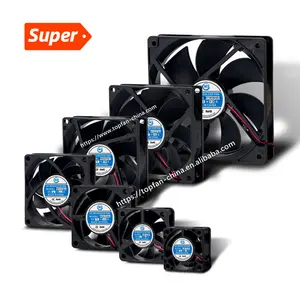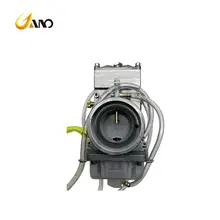Understanding AC Blowers
An AC blower, a pivotal component in air management systems, is engineered to circulate air and gases efficiently. This category encompasses a variety of blowers, each tailored for specific environments and applications. The centrifugal fan, a prevalent variant, employs a ducted housing to channel airflow precisely. Conversely, the squirrel-cage fan, reminiscent of a rodent's exercise wheel, is lauded for its efficiency and cost-effectiveness, making it a staple in industrial settings.
Types and Applications of AC Blowers
The versatility of AC blowers is evident in their wide-ranging types. Mini blowers, with their compact design, are ideal for confined spaces, such as vehicles or personal workstations. Their ergonomic handles enhance portability, allowing for directed airflow as needed. On a larger scale, industrial blower fans cater to robust performance demands with minimal upkeep, suitable for commercial and industrial environments. For space-sensitive installations, small squirrel cage fans offer a practical solution, easily fitting into closets, crawl spaces, and attics. Exhaust blowers, efficient in their operation, provide a cost-effective solution for high-performance air extraction.
Features and Materials
The construction of an AC blower is a testament to its functionality. Materials are chosen for durability and performance, with components often made from metals or high-strength plastics to withstand various operational demands. The design of these blowers ensures that they can deliver a consistent flow of air, with some models featuring variable speed controls for precise airflow management. The adaptability of these devices is further enhanced by their ability to operate in multiple orientations, providing flexibility in installation and use.
Advantages of AC Blowers
The advantages of utilizing an AC blower are multifaceted. Their efficiency in moving large volumes of air makes them indispensable in HVAC systems, while their design allows for continuous operation with minimal maintenance. The scalability of blower fans, from miniature to industrial sizes, ensures there is a suitable model for every application, whether it's for drying floors or ventilating spaces. Furthermore, the ease of handling and installation of smaller units makes them user-friendly for a variety of applications.
Choosing the Right AC Blower
Selecting the appropriate AC blower necessitates a consideration of the intended application, space constraints, and performance requirements. Factors such as airflow rate, pressure, and noise levels are critical in determining the right fit for a specific environment. It is essential to assess the operational environment as well, considering factors like ambient temperature and the presence of corrosive substances, which may influence the choice of materials and the design of the blower.
Conclusion
In conclusion, the AC blower is a versatile and essential device for a myriad of air circulation needs. From compact units for personal use to robust industrial fans, these blowers are designed to offer reliable performance in diverse settings. By understanding the types, applications, and features of AC blowers, businesses can make informed decisions to meet their air movement requirements effectively.










































 浙公网安备 33010002000092号
浙公网安备 33010002000092号 浙B2-20120091-4
浙B2-20120091-4